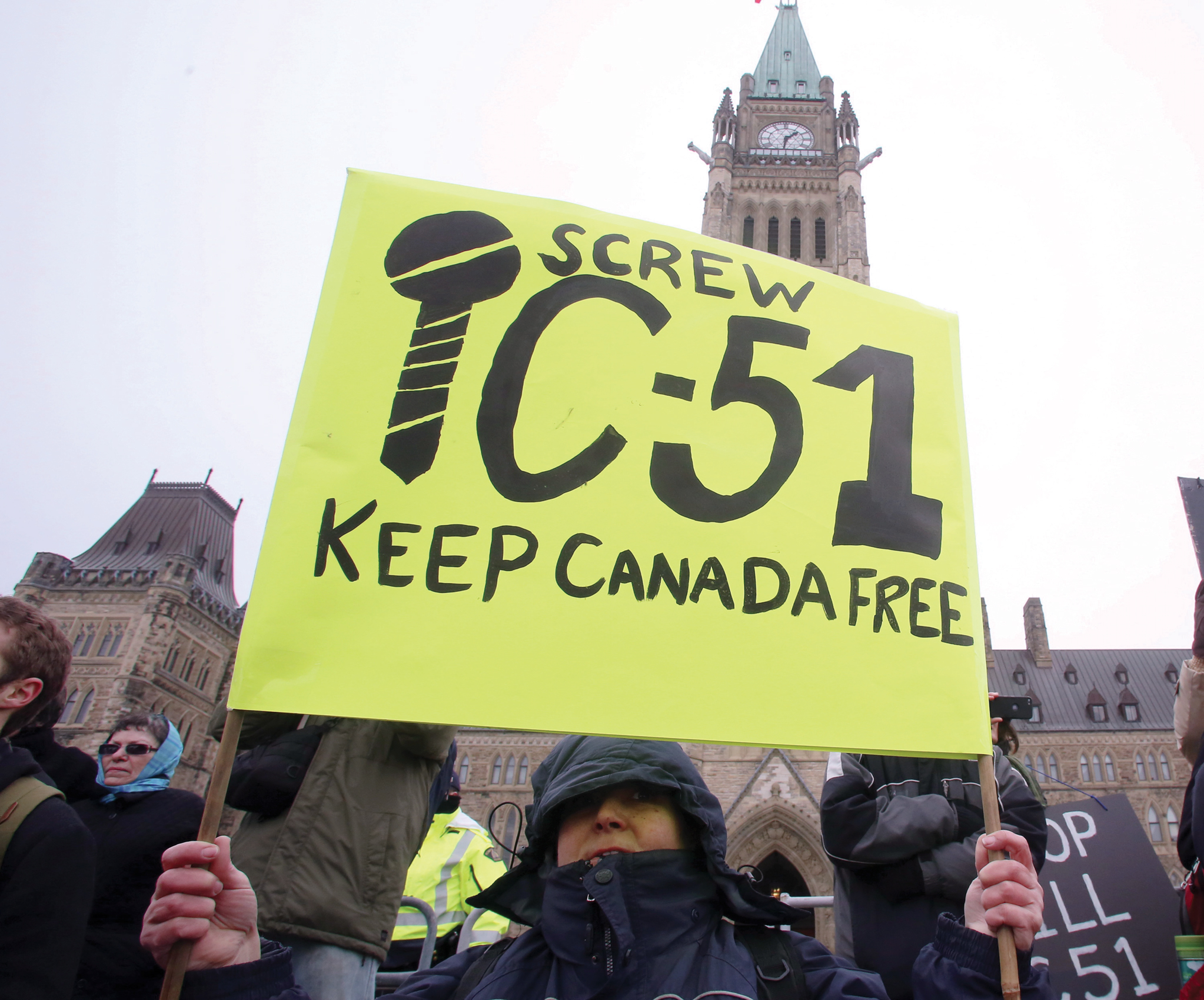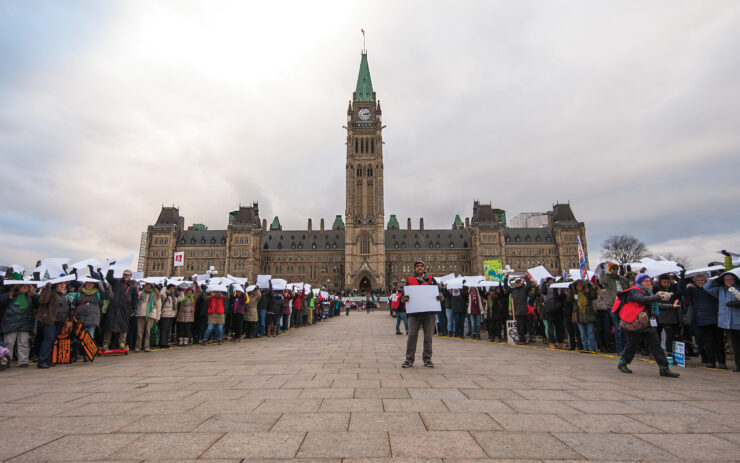Liberals promise in campaign to overhaul “problematic elements” of controversial anti-terrorism bill
Ottawa (iPolitics)—The government’s highly-anticipated review of its national security framework, including the Harper government’s controversial anti-terrorism legislation C-51, is expected to start before parliamentarians return from summer break.
“Yes, it will be soon—so most likely before parliament resumes,” said Scott Bardsley, press secretary for public safety minister Ralph Goodale.
Prime Minister Justin Trudeau campaigned on a promise to “repeal the problematic elements of Bill C-51, and introduce new legislation that better balances our collective security with our rights and freedoms.”
But so far, he has not provided details on when he envisions starting that process, despite pressure from critics of the law.
In Bridgetown, N.S. on Aug. 16 Trudeau reiterated his position on the importance of balancing security with civil liberties—a balance critics of C-51 said the previous government did not achieve.
“All Canadians expect their government to do two things: to keep Canadians safe and to defend and uphold the values and rights that all Canadians hold dear,” Trudeau said. “Getting that balance right isn’t always easy in the challenging situation we now live in but it’s extremely important.”
As Goodale recently reiterated in a column with the Huffington Post, the problematic C-51 elements identified in the campaign platform are only the minimum of what the government will do to fix national security legislation.
In particular, those elements include the need to “ensure compliance with the Charter of Rights and Freedoms, full protection for advocacy and protest, the correction of appeal procedures in respect of ‘no fly’ lists, a more precise definition of ‘terrorist propaganda’, and a full review of all anti-terrorism laws after three years.”
Input from Canadians could see those priorities expand during the course of the national security review, which is expected to wrap up this fall.
A more specific timeline will be announced once the review is launched, Bardsley says.
Nine months into its majority government, Trudeau and his ministers have been ticking off national security items from their campaign platform, though not always in the way they had promised.
One of those was the promised national security committee of parliamentarians, a key issue for opponents of C-51, which Goodale has said should be up and running this fall.
Craig Forcese, a professor focusing on national security law at the University of Ottawa, described the bill creating the committee as flawed but not fatally so, noting that while the legislation is a good move overall, the restrictions set on it essentially relegate the committee to focusing on “high-level” issues by allowing the government to withhold requested information, shut down investigations, and censor reports before they can be tabled in the House of Commons.
He likened one exception allowing the government to withhold information from the committee for national security reasons as a “potential Mack truck exception.”
The committee will not be subject to judicial review, meaning members will have no formal recourse through which to challenge government refusals to disclose information or orders to shut down investigations.
Originally, the Liberals had promised to allow the committee to have an oversight function but abandoned that term in the weeks leading up to the committee’s announcement and instead scaled back its role as one that will “review and scrutinize” intelligence activities.
As well, the government has moved ahead on a promise to help those whose names match those on the no-fly list and who face travel delays during the extra time needed to clear their name in the system.
In June, Goodale announced the creation of a new government office to support those travellers, with the eventual goal of allowing those travellers to apply for a unique identification number to distinguish them in aviation systems.
That overhaul could take roughly a year and a half, Goodale says.
Former prime minister Stephen Harper brought in C-51 following the October 2014 attacks on Parliament Hill and in St-Jean-sur-Richelieu, Quebec that killed two Canadian Forces members: 24-year-old Cpl. Nathan Cirillo and 53-year-old Warrant Officer Patrice Vincent.
Bill C-51, which received royal assent in June 2015, criminalizes the promotion of terrorism, cracks down on vaguely-defined “terrorist propaganda” and gives judges the authority to order its removal from the Internet.
It also widens the net of who can be preventatively arrested without a warrant, allows for expanded information sharing on people deemed threats to national security among 17 different government —departments, and grants the Canadian Security Intelligence Service the new power to actually disrupt suspected terrorist plots instead of just collect information about them.




